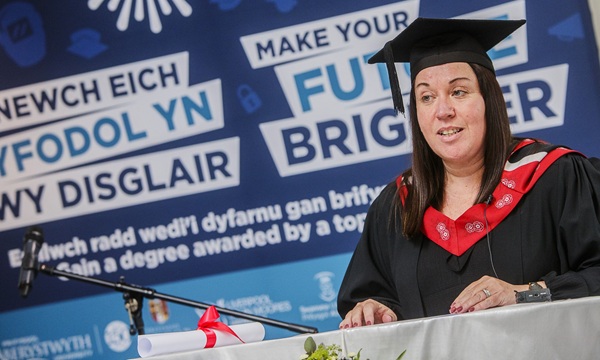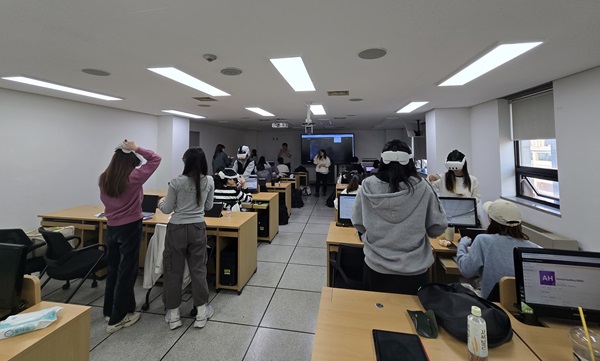A pioneering scheme to help increase the Welsh language skills of people working in the Early Years education and childcare sector in Wales has been officially launched by the National Centre for Learning Welsh.
Nursery teachers, childminders and staff at playgroups, day nurseries and ‘cylchoedd meithrin’ Welsh-medium groups will be among the practitioners taking part in the ‘Camau’ Learn Welsh Scheme, the Centre announced at this year’s Urdd Eisteddfod in Cardiff Bay.
The scheme (‘Camau’, pronounced ‘Kam-aye’, means ‘Steps’ in Welsh) will help Early Years practitioners respond more effectively to the Welsh Government’s proposed new curriculum and Foundation Phase for three-to-seven year-olds. Welsh Language Development is one of the seven areas of learning identified in the Foundation Phase.
It’s expected that 350 practitioners will attend face-to-face Welsh language training over the next year with a further 1,000 following a language awareness course.
The scheme will contribute funding to employers to allow their workers to attend training courses to increase their Welsh language skills.
The initiative will support the Welsh Government’s policy aim to achieve a million Welsh speakers by 2050.
The Camau Learn Welsh Scheme is supported by £250,000 of Welsh Government funding and will initially run for one year up to March 2020.
It is being delivered on behalf of the National Centre for Learning Welsh by Sbectrwm Consultancy, the lead partner in a consortium that also includes Welsh Language Services Centre, Rhagoriaith, and Coleg Cambria, following a successful tender bid.
The scheme is part of the Work Welsh/Cymraeg Gwaith initiative, which aims to strengthen Welsh language skills in the workplace. Work Welsh provides suitable and flexible fully-funded training for employers. The scheme has been a significant success with around 13,000 individuals taking part since its launch in 2017.
Benefits to younger children
Announcing the Camau Learn Welsh Scheme, Dona Lewis, Deputy Chief Executive at the National Centre for Learning Welsh, said:
“The scheme will enable practitioners across the Early Years sector to increase their Welsh language skills which will in turn significantly benefit very young children as they start their journey to be fluent Welsh speakers.
“We know that language acquisition occurs quickly and naturally in children up to age five. This is especially relevant in light of Welsh Government proposals to increase the hours of childcare funding for eligible working parents of three and four year-olds to 30 hours for up to 48 weeks of the year.”
She added:
“We’re delighted to be working with Sbectrwm Consultancy to deliver this latest addition to the Centre’s wide range of programmes that help people from across Wales to learn Welsh.”
Cefin Campbell, Managing Director of Sbectrwm Consultancy, said:
“This new Learn Welsh scheme helps meet a genuine training need within the Early Years sector to strengthen the Welsh language skills of practitioners.
“Alongside our partners, Rhagoriaith and Coleg Cambria, we’re looking forward to implementing this flexible, tailored learning programme over the next 12 months.”
Collaboration with the sector
The National Centre for Learning Welsh has worked closely with CWLWM, a network of membership organisations including ‘cylchoedd meithrin’ (Welsh-medium groups), playgroups, day nurseries, childminders and pre and after school clubs to develop the scheme.
During 2017/18, a project was established to assess the Welsh language skills of practitioners, sampling across different types of jobs and providers. A diagnostic tool, known as the Welsh Language Level Checker, was developed to help identify the language skills of workers within the sector.
Identifying linguistic training needs has led to the commissioning of five bespoke courses at different levels of fluency – Entry, Foundation, Intermediate and Advanced levels – and an additional course for the play sector, at Entry level.
During 2018/19 nine pilot courses were held following four separate delivery models, with highly positive feedback.







